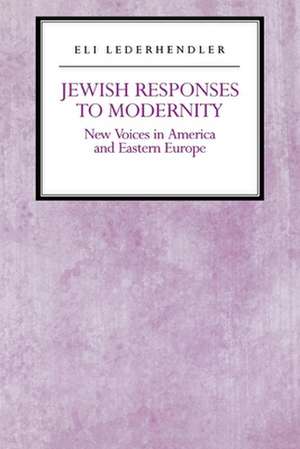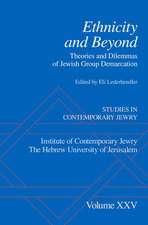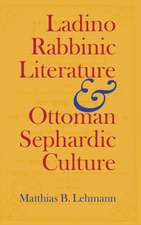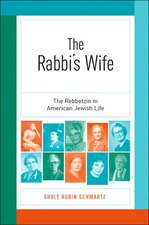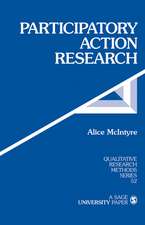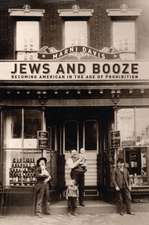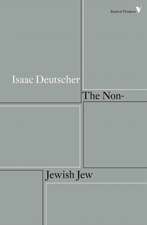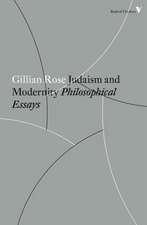Jewish Responses to Modernity – New Voices in America and Eastern Europe: Reappraisals in Jewish Social History
Autor Eli Lederhendleren Limba Engleză Paperback – 31 iul 1997
| Toate formatele și edițiile | Preț | Express |
|---|---|---|
| Paperback (1) | 224.55 lei 6-8 săpt. | |
| MI – New York University – 31 iul 1997 | 224.55 lei 6-8 săpt. | |
| Hardback (1) | 524.83 lei 6-8 săpt. | |
| MI – New York University – 30 iun 1994 | 524.83 lei 6-8 săpt. |
Preț: 224.55 lei
Nou
Puncte Express: 337
Preț estimativ în valută:
42.97€ • 44.77$ • 35.58£
42.97€ • 44.77$ • 35.58£
Carte tipărită la comandă
Livrare economică 03-17 aprilie
Preluare comenzi: 021 569.72.76
Specificații
ISBN-13: 9780814751381
ISBN-10: 0814751385
Pagini: 244
Dimensiuni: 152 x 229 x 15 mm
Greutate: 0.34 kg
Ediția:Revised
Editura: MI – New York University
Seria Reappraisals in Jewish Social History
ISBN-10: 0814751385
Pagini: 244
Dimensiuni: 152 x 229 x 15 mm
Greutate: 0.34 kg
Ediția:Revised
Editura: MI – New York University
Seria Reappraisals in Jewish Social History
Recenzii
"With the support of unfamiliar documents and books, Lederhendler skillfully investigates the interplay of culture and politics in the shaping of modern Jewish nationalism, the developement of new sources of Jewish authority, and the confrontation of Jews with various forms of government. Americanization as he redefines it emerges from this study as one of the most creative and significant Jewish responses to modernity--no simple matter of `assimilation,' but a symbiotic adjustment that confirms the rich freedom of America in the process of testing it."
Ruth R. Wisse, Harvard University, author of If I Am Not For Myself: The Liberal Betrayal of the Jews "Jewish Responses to Modernity is a model of the scholarly enterprise at its best: highly readable, engaged, informed and informative. Eli Lederhendler's nuanced focus on language and the semiotics of social and political transformations within modern Jewish culture are equally illuminating about the Old World and the New."
Anita Norich, University of Michigan
Ruth R. Wisse, Harvard University, author of If I Am Not For Myself: The Liberal Betrayal of the Jews "Jewish Responses to Modernity is a model of the scholarly enterprise at its best: highly readable, engaged, informed and informative. Eli Lederhendler's nuanced focus on language and the semiotics of social and political transformations within modern Jewish culture are equally illuminating about the Old World and the New."
Anita Norich, University of Michigan
Textul de pe ultima copertă
Facing the dizzying array of changes commonly referred to as "modernity", Jews in nineteenth-century Eastern Europe and early twentieth-century America reflected the crises and opportunities of the modern world most eloquently in their speech, their culture, and their literature. Relying on those spoken and written words as "eyewitnesses", Eli Lederhendler illustrates how the self-perceptions of Jews evolved, both in the Old World and among immigrants to America. He focuses on a wide range of subjects to provide an overview of this clash between old and new and to reveal ways in which cultural conflicts were reconciled. How, for instance, was messianic language adapted to serve nationalistic goals? What did America signify to Jewish thinkers at the turn of the century? What do Jewish "user's guides" to the New World tell us about Jewish secular culture and its perspective on sex, love, marriage, etiquette, and health? More generally, what do Jewish letters and literature tell us about how communities adapt to radically new environments? Jewish Responses to Modernity highlights the manner in which codes and symbols are passed from one generation to the next, reinforcing a group's sense of self and helping to define its relations with others, demonstrating yet again the importance of language as a vehicle for minority-group self-expression in the past and in the present.
